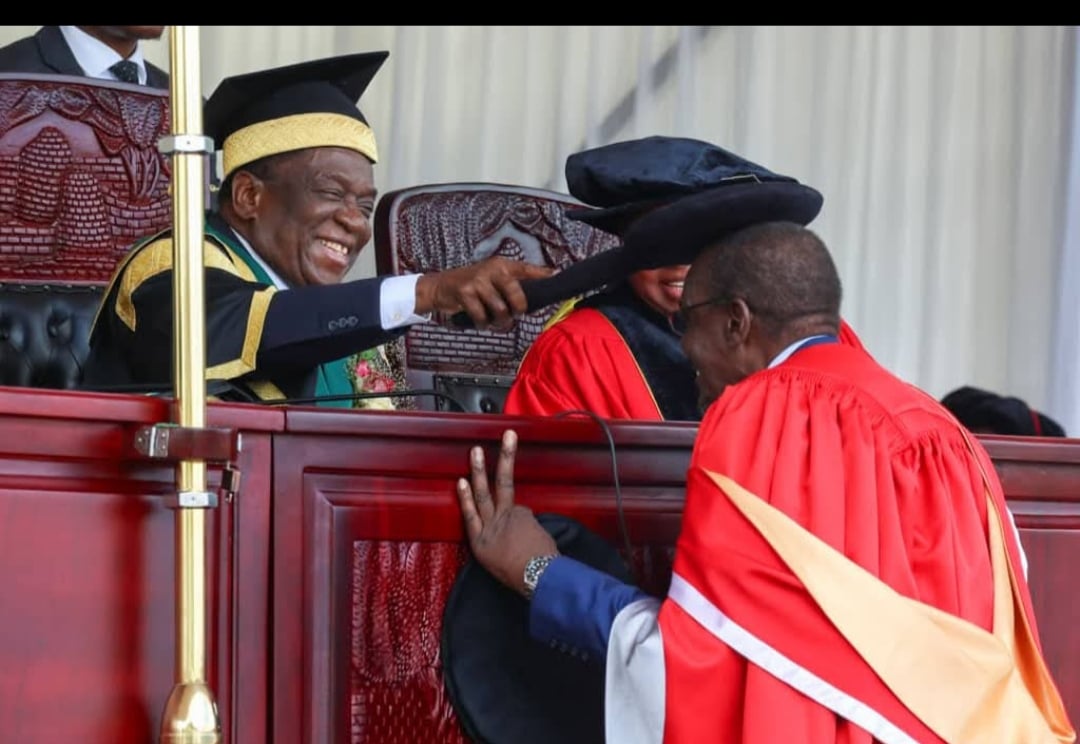Copyright zimeye

By A Correspondent President Emmerson Mnangagwa on Thursday conferred an Honorary Doctor of Social Sciences in Leadership (Honoris Causa) on his deputy, Kembo Mohadi, during Great Zimbabwe University’s (GZU) 19th graduation ceremony in Masvingo. Mnangagwa, who serves as Chancellor of all state universities, said the honour recognised Mohadi’s “distinguished contribution to the liberation struggle and decades of public service.” More than 3,400 graduates from various disciplines were capped at the event. However, several academics in Masvingo dismissed the conferment as a political gesture rather than a recognition of genuine merit. One academic said the decision “illustrates how universities have become tools for political endorsement instead of institutions that uphold academic integrity.” “This is no longer about honouring scholarship or leadership excellence,” the academic added. “It’s about rewarding loyalty. Such moves cheapen the meaning of an honorary degree and erode public trust in universities.” Another lecturer echoed similar sentiments, describing the ceremony as “a staged performance meant to sanitise the image of political elites.” “The timing is too convenient and the message is clear—align yourself with power and you will be decorated, regardless of past controversies,” said the lecturer. GZU’s citation praised Mohadi as a “patriotic leader, liberation war veteran, and public servant whose unwavering commitment to national development continues to inspire generations.” Yet, the decision has reignited debate about the politicisation of higher education in Zimbabwe. Critics argue that honorary degrees are increasingly being used to legitimise ruling party figures rather than celebrate authentic achievement. The Zimbabwe Council for Higher Education (ZIMCHE) has previously cautioned institutions against awarding honorary degrees “without clear merit,” warning that such actions “undermine the credibility of the higher education system.”



